The Hyksos invasion of Egypt (1782–1570 BCE) marked a life-changing period, introducing military innovations like chariots and composite bows. Their rule led to advancements in agriculture and industry, as well as cultural exchange. Tensions with Thebes culminated in their expulsion by Pharaoh Ahmose I, paving the way for the rise of Egypt’s New Kingdom. Despite their defeat, the Hyksos’ contributions continued to shape Egypt's military and imperial strategies.
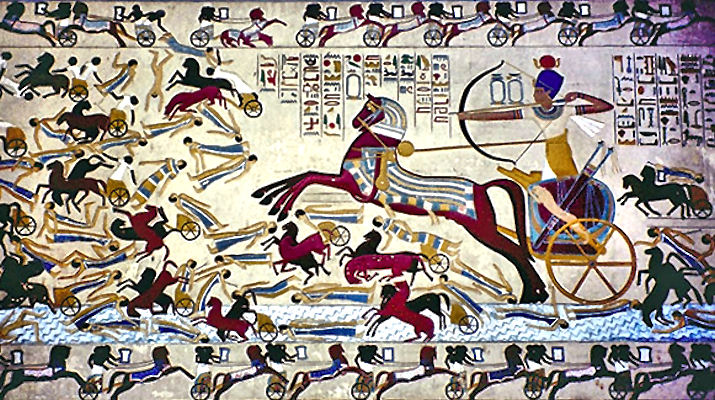
The Hyksos invasion was a defining chapter in ancient Egyptian history. Far from being mere destroyers, the Hyksos were agents of change who introduced transformative technologies and facilitated cultural exchange. Their eventual expulsion by Ahmose I marked not only the restoration of Egyptian sovereignty but also the dawn of an era of unprecedented power and prosperity.
The Hyksos were a Semitic people of West Asian origin, a significant force in the history of ancient Egypt. Their presence during the Second Intermediate Period (1782–1570 BCE) not only challenged Egyptian dominance but also introduced transformative changes that shaped the trajectory of the civilization.
From their arrival and rule to their eventual expulsion by the Theban king Ahmose I, the story of the Hyksos reveals a rich wealth of cultural exchange, conflict, and innovation. This article explores the origins, influence, and legacy of the Hyksos, shedding light on one of the most transformative eras in Egyptian history.
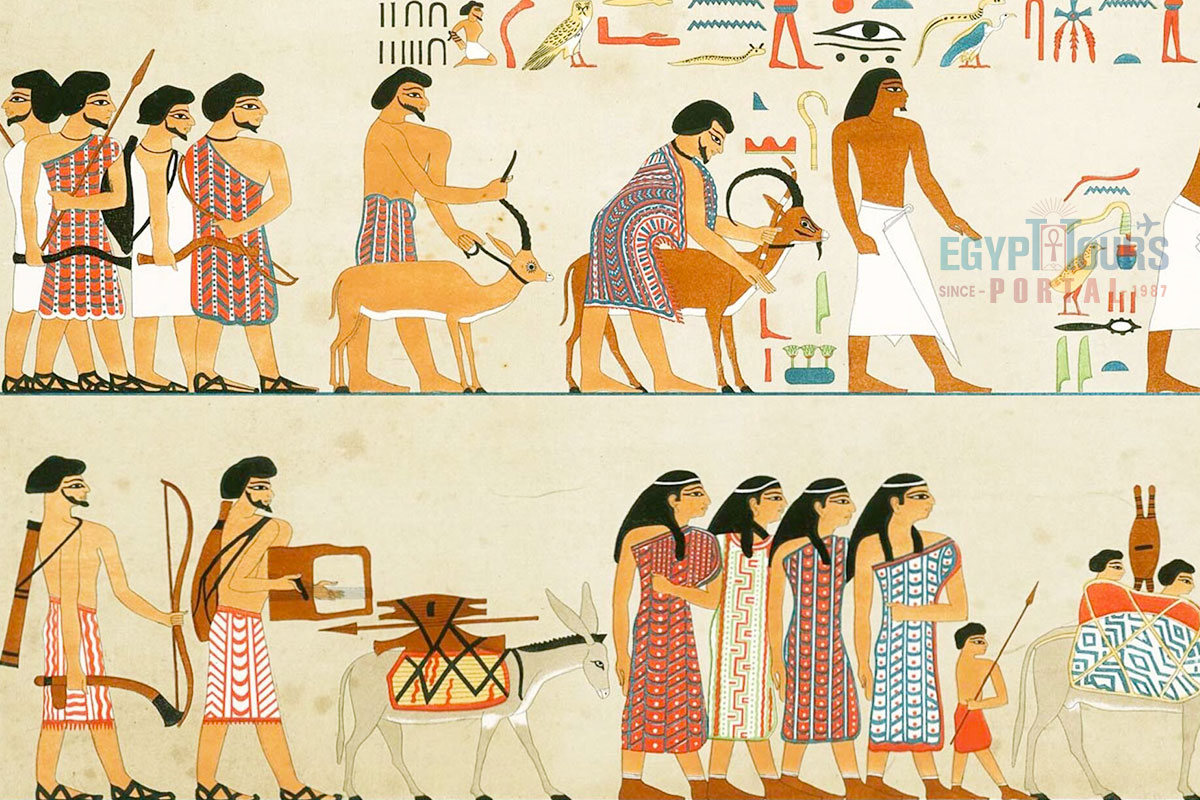
The name "Hyksos" is derived from the Egyptian term Heqau-khasut, meaning "Rulers of Foreign Lands." This term, later adapted by the Greeks, refers to a group of people with mixed Semitic heritage. Scholars suggest that the Hyksos were likely a collection of traders, immigrants, and possibly displaced nobility from the Levantine region. They may have fled their homelands due to political upheaval or economic necessity, finding refuge in Egypt during the decline of the 13th Dynasty.
Their arrival in the Nile Delta was facilitated by Egypt's relatively porous northeastern border. By 1782 BCE, they had settled in the port city of Avaris, which grew into a thriving hub of commerce and trade. The Hyksos were not immediately seen as a threat, as Egypt's perception of its borders and security was insular. Egyptians referred to foreigners, particularly those from Asia, as "Asiatics" and often viewed them as outsiders unworthy of the land of the gods.
Discover the various enemies of the ancient Egyptian civilization
Read More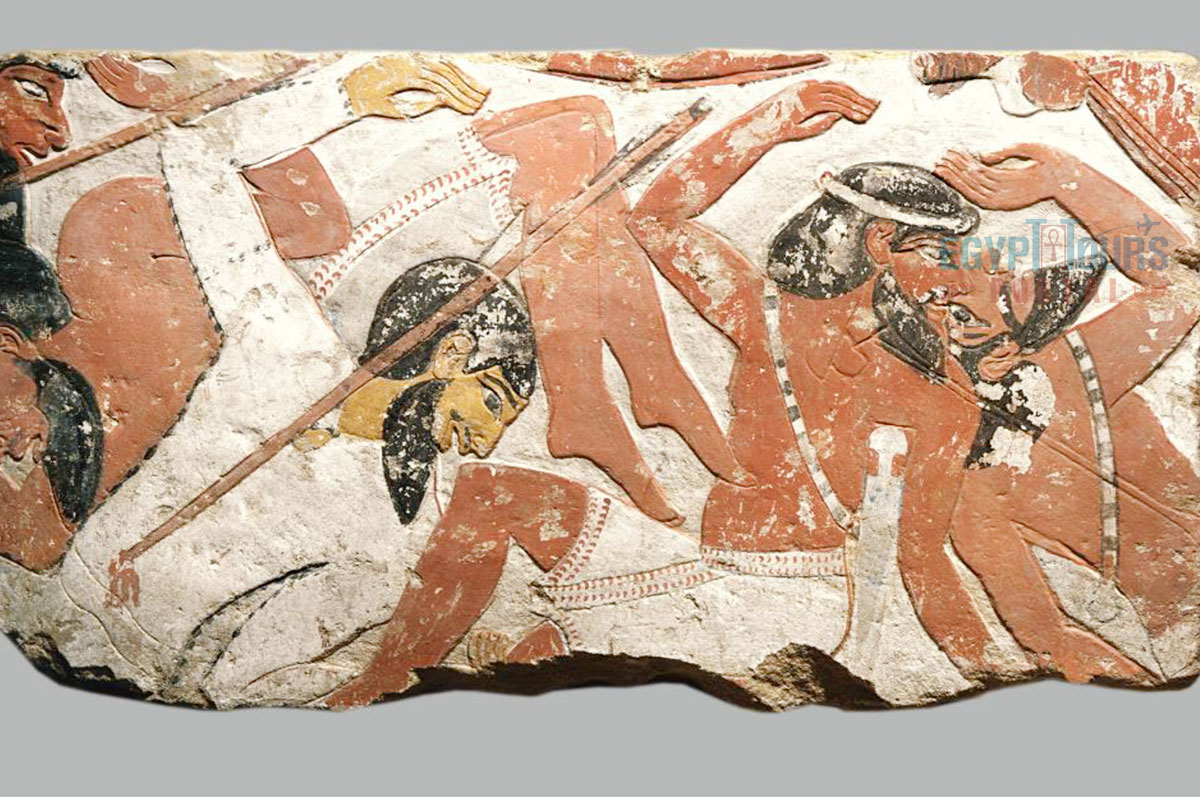
During the Middle Kingdom (2040–1782 BCE), Egypt enjoyed a period of unity and cultural flourishing. However, the political fragmentation that followed in the 13th Dynasty weakened the central authority, leaving Lower Egypt vulnerable. The relocation of Egypt’s capital from Itj-tawi near Lisht back to Thebes in Upper Egypt created a power vacuum in the north. The Hyksos capitalized on this opportunity, gaining control of the eastern Nile Delta and establishing Avaris as their stronghold.
The Hyksos rose to power through strategic alliances, economic dominance, and military strength. They did not conquer Egypt in a single invasion, as later Egyptian scribes claimed, but gradually expanded their influence. Their dominance culminated in the establishment of the 15th Dynasty, with rulers such as Sakir-Har, Khyan, and Apepi (Apophis) playing prominent roles in governing Lower Egypt.
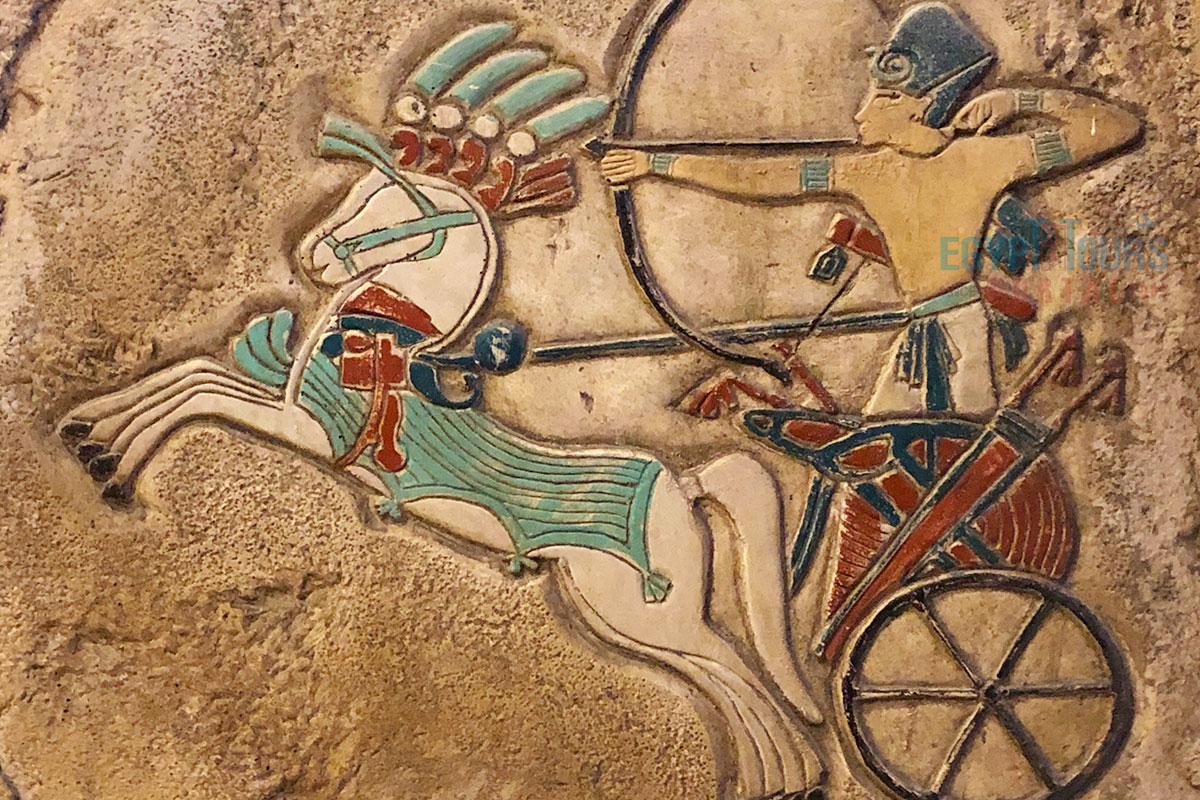
Contrary to the hostile accounts of New Kingdom scribes, the Hyksos brought significant advancements to Egypt, many of which had a lasting impact:
Discover the source and innovation behind the horses and chariots of ancient Egypt
Read MoreThe Hyksos were responsible for introducing several military technologies that revolutionized Egyptian warfare:
These advancements were later adopted by the Egyptians and became central to the military strategies of the New Kingdom.
The Hyksos introduced new methods of irrigation, improving agricultural productivity in the Delta region. They also brought:
The Hyksos assimilated into Egyptian society, adopting local customs, language, and religious practices. While their chief deities were Baal and Anat, they identified Baal with the Egyptian god Set, integrating him into their pantheon as a symbol of strength and chaos.
Under their rule, cultural preservation also flourished. The Hyksos copied and maintained Egyptian texts, ensuring the survival of many ancient works.
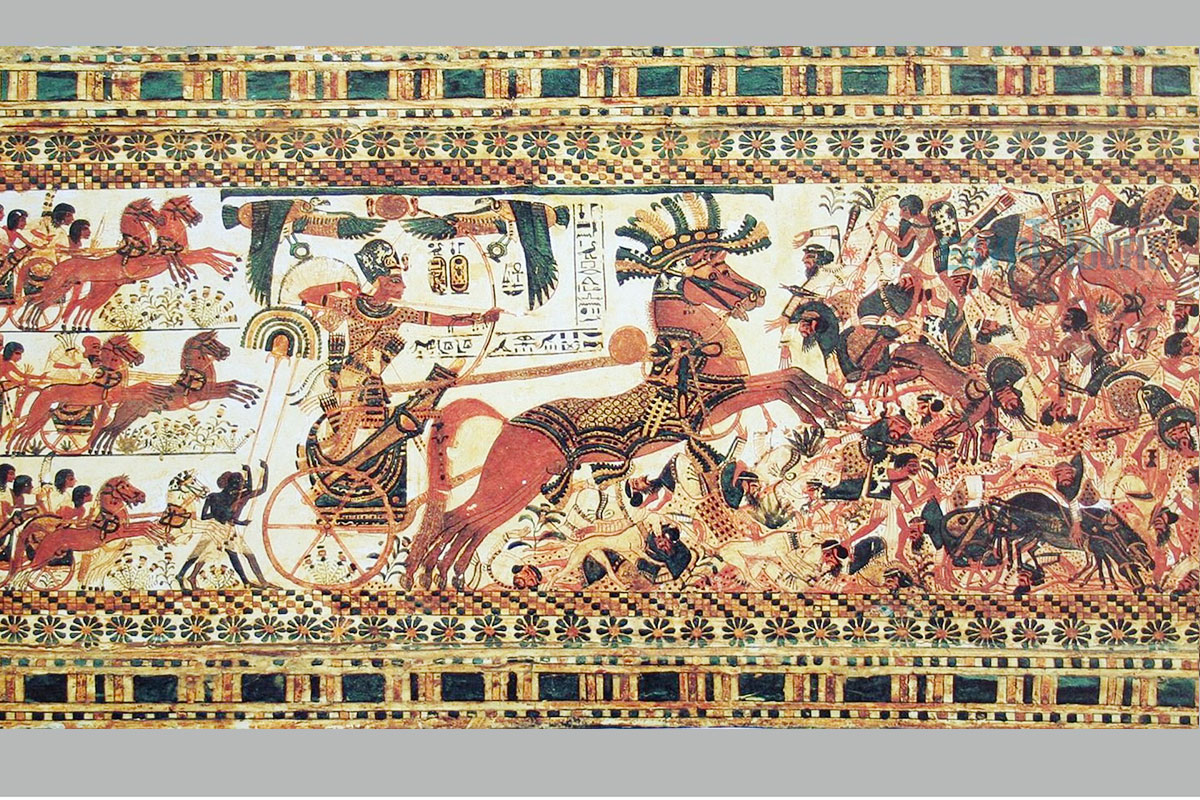
Tensions between the Hyksos and the southern Theban kingdom simmered for years. While trade and diplomacy initially maintained peace, resentment grew in Thebes over Hyksos dominance and the tribute they demanded. The first major confrontation occurred during the reign of Seqenenra Taa (1580 BCE), who initiated hostilities against the Hyksos.
According to later accounts, the conflict began with a provocative message from the Hyksos king Apepi to Seqenenra Taa, demanding the removal of a hippopotamus pool in Thebes. The story, though possibly apocryphal, symbolizes the growing animosity between the two powers. Seqenenra Taa was killed in battle, as evidenced by his mummy, which bears severe wounds.
Seqenenra Taa's son, Kamose, took up the cause, launching a series of offensives against the Hyksos. Kamose's inscriptions boast of swift victories, including a dramatic attack on Avaris. However, the Hyksos retained control of Lower Egypt during his reign.
Ahmose I, Kamose's younger brother, ultimately expelled the Hyksos. His campaigns culminated in the siege of Avaris and the retreat of the Hyksos to Sharuhen in Palestine. Ahmose pursued them, besieging Sharuhen for six years until the Hyksos were finally driven out. Their fate after this defeat remains unknown, as historical records fall silent.
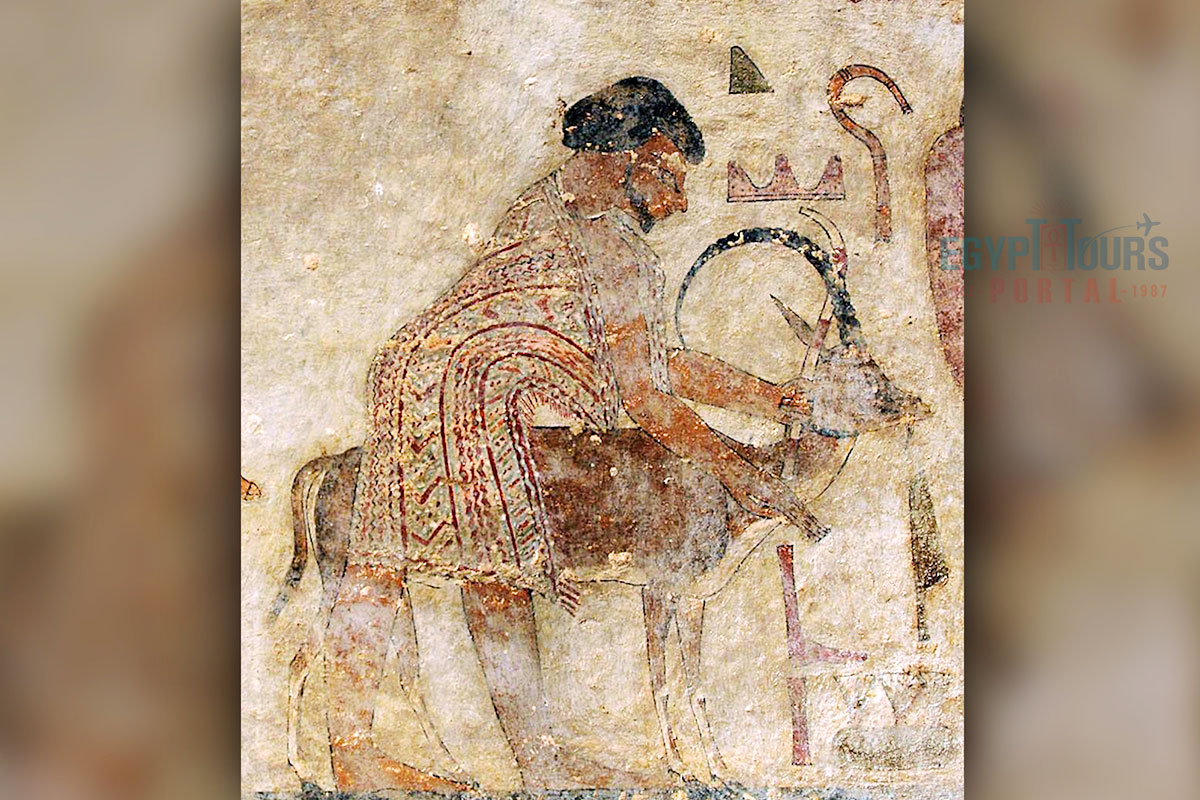
The expulsion of the Hyksos marked the beginning of the New Kingdom (1570–1069 BCE), Egypt’s Golden Age. Their legacy, however, persisted in several ways:
Discover the weapons of the ancient Egyptian army and society
Read MoreThe Egyptians, determined to prevent another foreign occupation, established a professional standing army. Under Ahmose I and his successors, Egypt expanded its borders, creating a buffer zone that extended into Nubia in the south and Canaan in the north. This marked the start of Egypt's imperial era.
The military technologies introduced by the Hyksos became standard in Egyptian warfare. Chariots, composite bows, and bronze weaponry featured prominently in the campaigns of New Kingdom pharaohs like Thutmose III and Ramesses II.
The Hyksos facilitated increased trade and cultural exchange with the Levant, Mesopotamia, and the Aegean. This period saw the introduction of foreign crafts, techniques, and ideas that enriched Egyptian society.
The Hyksos' association with Set influenced ancient Egyptian religious practices. After their expulsion, the rise of Amun-Ra as the supreme deity reflected a newfound emphasis on national unity and divine protection. This shift contributed to the theocratic nature of the New Kingdom.
Through conflict and adaptation, the Hyksos invasion left an indelible mark on Egypt, demonstrating that even foreign domination can catalyze innovation and growth. Their story serves as a testament to the complex interplay of cultures and the resilience of ancient civilizations.
It will be amazing to discover this marvelous information about the ancient history, civilization, battles, and mythology of Egypt by visiting the temples and archaeological sites during your breathtaking holidays to Egypt, or Nile cruise holidays.
Private 4 Days Cairo Tour Packages for British Travelers 4 days Cairo Egypt Tour pac...
Tour Location: Cairo – Giza...
5 Days Cairo and Alexandria Tour Package For British Travelers 5 days Cairo and Alex...
Tour Location: Cairo/Giza/Alexandria...
6 Days Cairo, Luxor & Aswan Tour Package For British Travelers 6 days Cairo, Lux...
Tour Location: Cairo/Giza/Aswan/Luxor...
Amazing 7 Days Cairo and Hurghada Holiday for British Travelers 7 Days Cairo & H...
Tour Location: Cairo – Giza – Hurgh...
Egypt regained power by leveraging military innovations introduced by the Hyksos, such as chariots and composite bows, and reorganizing its army. Under Ahmose I’s leadership, Egypt expelled the Hyksos, reclaimed Lower Egypt, and pursued their forces into Palestine to ensure their defeat. Ahmose centralized authority, fortified borders, and established the 18th Dynasty, initiating the prosperous New Kingdom era.
The invasion transformed the pharaoh's image from a divine ruler maintaining cosmic order to a warrior-king who was also the military protector of Egypt. Ahmose I set the precedent for this new role, combining religious and military authority. This perception persisted during the New Kingdom, with pharaohs seen as both defenders of the gods and the state.
The invasion exposed Egypt’s vulnerabilities, prompting the creation of a professional standing army equipped with advanced technologies. Egypt expanded its territory south into Nubia and north into Canaan and Syria to secure resources, trade routes, and a buffer zone against future invasions. These expansions turned Egypt into a regional superpower during the New Kingdom.
The Hyksos invasion highlighted the decisive role of advanced military technologies like chariots, composite bows, and bronze weapons. These innovations initially gave the Hyksos an advantage but were later adopted by the Egyptians, who used them to strengthen their military and secure dominance during the New Kingdom. This shift emphasized the critical importance of staying technologically competitive in warfare.
The entire country of Egypt deserve to be explored with its every heavenly detail but there are places that must be seen before any other such as the breathtaking Hurghada's red sea, The wonders of Cairo the pyramids of Giza, the great sphinx, the Egyptian Museum, Khan El Khalili Bazaar, the wonders of Luxor like Valley of the Kings, Karnak & Hatshepsut temple and the wonders of Aswan such as Abu Simbel temples, Philea temple, Unfinished obelisk and The Wonders of Alexandria like Qaitbat Citadel, Pompey's Pillar and Alexandria Library. Read more about the best places to visit in Egypt.
If you want to apply for a Visa On Arrival that lasts for 30 days then you should be one of the eligible countries, have a valid passport with at least 6 months remaining and pay 25$ USD in cash, as for the E-Visa for 30 day you should have a valid passport for at least 8 months, complete the online application, pay the e-visa fee then print the e-visa to later be presented to the airport border guard. You could also be one of the lucky ones who can obtain a free visa for 90 days. Read more about Egypt travel visa.
Egypt has a variety of delicious cuisines but we recommend “Ful & Ta’meya (Fava Beans and Falafel)”, Mulukhiya, “Koshary”, a traditional Egyptian pasta dish, and Kebab & Kofta, the Egyptian traditional meat dish.
The best time to travel to Egypt is during the winter from September to April as the climate becomes a little tropical accompanied by a magical atmosphere of warm weather with a winter breeze. You will be notified in the week of your trip if the Climate is unsafe and if any changes have been made.
You should pack everything you could ever need in a small bag so you could move easily between your destinations.
We have been creating the finest vacations for more than 20 years around the most majestic destinations in Egypt. Our staff consists of the best operators, guides and drivers who dedicate all of their time & effort to make you have the perfect vacation. All of our tours are customized by Travel, Financial & Time consultants to fit your every possible need during your vacation. It doesn't go without saying that your safety and comfort are our main priority and all of our resources will be directed to provide the finest atmosphere until you return home.
You will feel safe in Egypt as the current atmosphere of the country is quite peaceful after the government took powerful measures like restructuring the entire tourist police to include all the important and tourist attractions in Egypt. Read more about is it safe to travel to Egypt.
Wear whatever feels right and comfortable. It is advised to wear something light and comfortable footwear like a closed-toe shoe to sustain the terrain of Egypt. Put on sun block during your time in Egypt in the summer to protect yourself from the sun.
The best activity is by far boarding a Nile Cruise between Luxor and Aswan or Vise Versa. Witness the beauty of Egypt from a hot balloon or a plane and try all the delicious Egyptian cuisines and drinks plus shopping in old Cairo. Explore the allure and wonders of the red sea in the magical city resorts of Egypt like Hurghada and many more by diving and snorkeling in the marine life or Hurghada. Behold the mesmerizing western desert by a safari trip under the heavenly Egyptian skies.
There are a lot of public holidays in Egypt too many to count either religious or nation, the most important festivals are the holy month of Ramadan which ends with Eid Al Fitr, Christmas and new years eve. Read more about festivals & publich holidays in Egypt.
Egypt is considered to be one of the most liberal Islamic countries but it has become a little bit conservative in the last couple of decades so it is advised to avoid showing your chest, shoulders or legs below the knees.
Arabic is the official language and Most Egyptians, who live in the cities, speak or understand English or at least some English words or phrases. Fewer Egyptians can speak French, Italian, Spanish, and German. Professional tour guides, who work in the tourism sector, are equipped to handle visitors who cannot speak Arabic and they will speak enough English and other languages to fulfill the needs of all our clients.
The fastest way is a car, of course, a taxi. If you are in Cairo ride a white taxi to move faster or you could board the fastest way of transportation in Egypt metro if the roads are in rush hour.
The temperature in Egypt ranges from 37c to 14 c. Summer in Egypt is somehow hot but sometimes it becomes cold at night and winter is cool and mild. The average of low temperatures vary from 9.5 °C in the wintertime to 23 °C in the summertime and the average high temperatures vary from 17 °C in the wintertime to 32 °C in the summertime. The temperature is moderate all along the coasts.
It is the home of everything a traveler might be looking for from amazing historical sites dating to more than 4000 years to enchanting city resorts & beaches. You will live the vacation you deserve as Egypt has everything you could possibly imagine.









